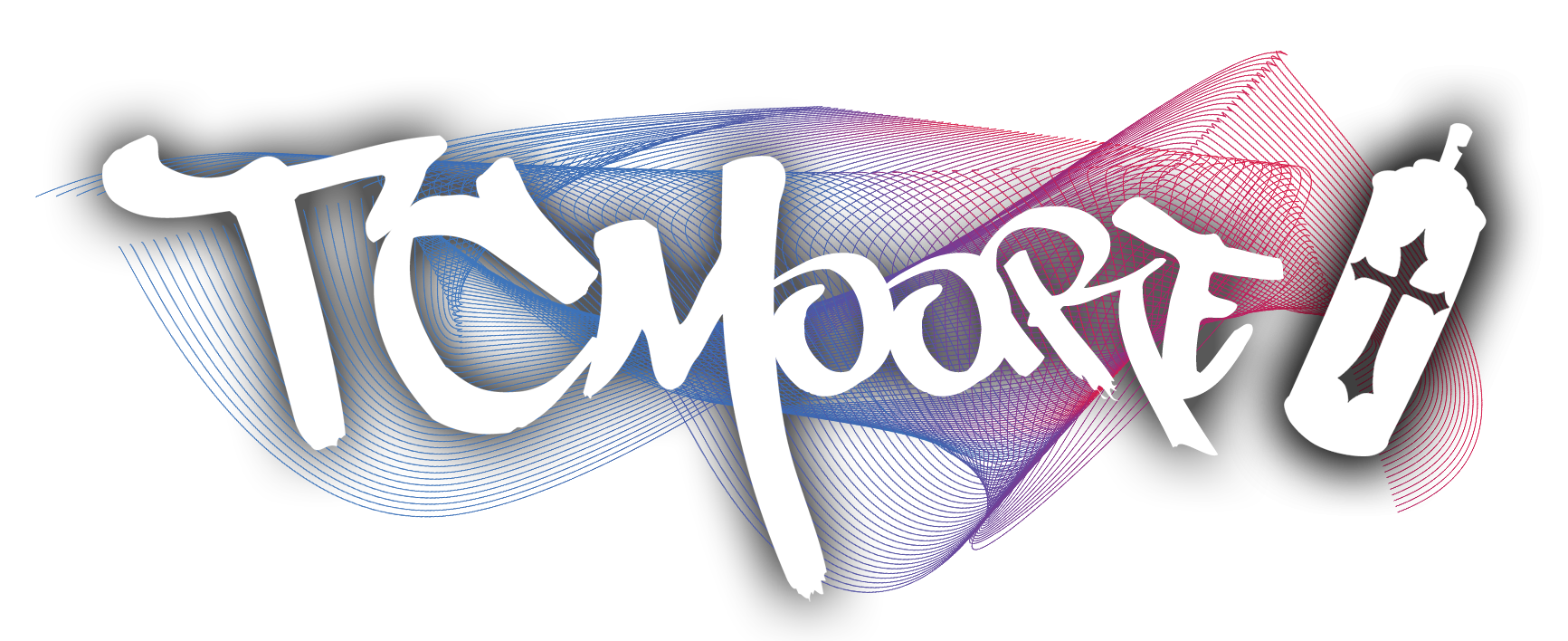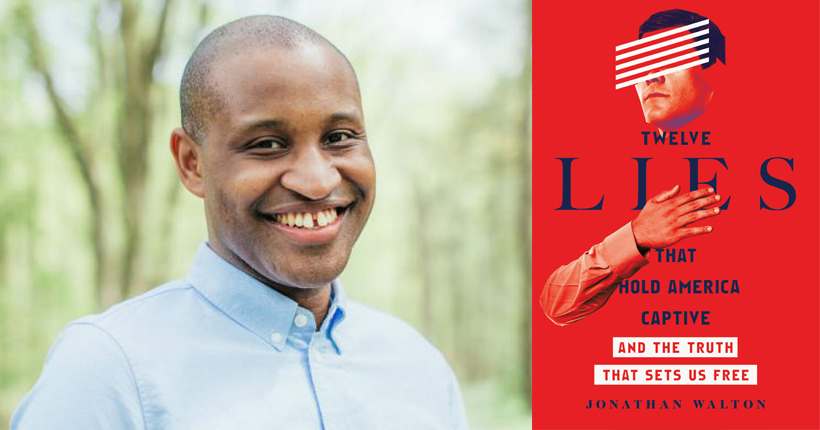In the wake of the 2016 presidential election, many Christians in the U.S. are soul-searching. How can it be that “Evangelicals,” the group that has taught people to live lives of holiness imitating Jesus, is the same group that overwhelmingly supported Donald Trump for president? It’s a question that has caused many Evangelicals of color in particular to reassess their relationship to both Evangelicalism and America. While 81% of white Evangelicals voted for Trump, 88% of African Americans voted against him (p.7). This stark contrast illustrates the deep divisions amidst the church in America. What is beneath these divisions? How is it that we can see things so differently? How can we ever be united again?
To address these questions and many others, Jonathan Walton has written a timely and prophetic message that delivers poignant and uncomfortable truths to the church in America in order to combat the insidious deception to which it has fallen victim. Walton is an African American InterVarsity leader from the South who now lives in New York, and Twelve Lies that Hold America Captive and the Truth that Sets Us Free (hereafter just Twelve Lies) is his heart-felt, deeply personal, and well-researched call for repentance. He urges those who would likely disagree with him by default to hear him out and not retreat to their bias-confirming bubble for comfort and reassurance. I’m not sure how successful that appeal will be, but I’m confident Twelve Lies will profoundly stretch those who are courageous enough to read it.
It’s not difficult to imagine many American Christians passing by this title, since the twelve lies Walton exposes are deeply embedding in the American psyche. The chapter titles alone may scare off those who are most blinded by what Walton calls WAFR (White American Folk Religion). This concept is key to understanding the book. White is “a manmade racial-gender-class-culture-based hierarchy." American is “national identity defined by citizenship and the level of adoption and mastery of whiteness.” Folk Religion is “a common set of popular beliefs and practices under the umbrella of a religion but is outside of the religion’s official doctrines and practices.” (p.201) Once readers grasp that WAFR is far more pervasive than they may realize, the book will make sense. WAFR is not a fringe ideology that is only espoused by hate groups or some Nationalistic cult. No, WAFR is mainstream belief, often unconsciously espoused by well-meaning and pious American Christians. That’s why it’s so insidious.
- Lie 1: We are a Christian Nation
- Lie 2: We all Are Immigrants
- Lie 3: We are a Melting Pot
- Lie 4: All Men are Created Equal
- Lie 5: We are a Great Democracy
- Lie 6: The American Dream is Alive and Well
- Lie 7: We are the Most Prosperous Nation in the World
- Lie 8: We are the Most Generous People in the World
- Lie 9: America is the Land of the Free
- Lie 10: America is the Home of the Brave
- Lie 11: America is the Greatest Country on Earth
- Lie 12: We are One Nation
While each chapter in this book is a well-crafted blend of fact-based research integrated with personal experiences and biblically-grounded insights, three chapters in particular stood out to me as especially excellent and relevant: Lies four, five, and ten.
Created Equal Doesn’t Mean Treated Equal (Chapter 4)
Lie four is “All Men are Created Equal.” Despite how it may first appear, Walton isn’t denying the biblical doctrine of the Imago Dei (image of God), the teaching in Scripture that human beings are created in the image of God (meaning, human beings have been given responsibility to steward creation on God’s behalf and reflect the Creator’s loving reign). Instead, Walton is debunking the default association adherents of WAFR make between the proposition that “all men are created equal” and the myth that “everyone in American society is treated equally and has equal access to opportunity.” While it’s certainly true that every human being is created in the image of God, the framers of the American Constitution who declared it was “self-evident” that “all men are created equal” nevertheless strongly believed in social hierarchy (a.k.a. Inequality). Let’s not forget that most of them were slave-owners and they only intended white, land-owning men to be citizens with full rights such as voting. So, the reality of social inequality that has always accompanied the axiom of created equality renders it mythological. It projects a theoretical equality that has never actually existed in this country, perpetuating a false sense of parity. When most Americans hear “all men are created equal” they think “everyone is equal in American society.” But that’s simply a lie. And this lie has profound consequences for everyone who buys into it. It places undue blame on those fail to achieve their goals and it places undue credit on those who do. What this lie creates is a deceptive individualism that favors the privileged in society and punishes the disadvantaged. As Walton puts it so well:
…with the myth that we are all created equal running in the background of the American operating system, adversity turns into a problem for the individual, not for the collective. WAFR’s assertion that we are all created equal implies that if I am behind, no one is to blame except me. If equal opportunity is the goal and the reality, then we all have the same starting line. The outcome is my fault or my credit at the end of the day. To implicate the elaborate system of social barriers keeping me, my family, my people group, or my culture in perpetual poverty is a cop-out. I need to take personal responsibility. The effects and influence of barriers and opportunity structures are minimized, if not wholly dismissed. (p.65)
Walton peels back the thin veneer of theoretical equality that coats our public discourse in the U.S., to reveal the reality of social inequality. When Christian in America gloss over systemic disadvantages to either credit or blame individuals for their success or failure, they reveal that they have bought into WAFR, and rejected the Way of Jesus and the Torah which both call upon the people of God to confront injustices in society and to prioritize the support and flourishing of its most vulnerable and disadvantaged members. WAFR has conditioned Christians in America to believe that they are only responsible for themselves and no one else. But Jesus teaches that we responsible for everyone and especially those who need us the most.
No Faith in Democracy (Chapter 5)
One of the stand-out areas of Twelve Lies is how skillfully Walton navigates the necessity of a public faith and a counter-cultural, Kingdom identity. In chapter five, he clearly shows that Christian discipleship necessarily encompasses the social dimension of life against the individualism of modern Western culture. But he couples that crucial insight with an informed and devastating critique of the American political system. In my experience these two are rarely held together at all, let alone this well. Walton systematically proves that the United States is not a great democracy—that in fact democracy was viewed as a threat to the system of government envisioned for America by its founders. With well-researched, fact-based sections on voter suppression, gerrymandering, lobbying & campaign finance reform, and voter turnout, Walton shows that the American system is designed to resist the power of the people, not foster it. This will no doubt shake the faith so many American Christians have placed in the system and that’s Walton’s goal. He wants to demonstrate that the type of allegiance being yielded to America is idolatrous.
…faith is required to put my hope and trust in this country. […] This expectation of unwavering hope and trust connected to hope and trust connected to a set of actions such as pledging allegiance, standing for an anthem, and honoring politicians and military personnel regardless of their integrity sounds less like a country and more like a religion. (p.81)
Walton here channels Matthew Bates (i.e. Salvation by Allegiance Alone), who calls us to reimagine “faith” more as “allegiance” than intellectual assent to doctrinal propositions. And Walton also channels James K. A. Smith and his liturgical pedagogy of formation (cf. Desiring the Kingdom, You Are What You Love, etc.). The practices in which we participate are formative—even the ones we participate in unconsciously. Embodied practices, especially those practices which are specifically designed to elicit devotion, trust, hope, and allegiance, aren’t merely what we do, but are doing something to us. Walton shows both that America is not a strong democracy and that patriotic practices function in a formative way. Walton’s critique of the American political system and call to allegiance to the Kingdom of God is also very reminiscent of Neo-Anabaptist theologians like Greg Boyd (cf. Myth of a Christian Nation, etc.) who have called Christians in America to a distinct, counter-cultural, Jesus-looking witness:
Most important though is that this entire system, like every political system, is at odds with God the Father seated on the throne in glory with Jesus at his right hand. (p.81)
Even the best earthly political/governmental system is not the Kingdom of God. Like Boyd and others, Walton calls us to only place our trust and hope in the social order that is invading this world through Jesus, the Spirit, and the people of God. This is a very difficult word for younger Christians in the U.S. who have adopted an activist hope in the political process to bring about needed reforms and lasting change. Some will no doubt misread Walton as advocating a type of separatism or quietism. This is a very common reaction to calls for radical discipleship and allegiance. But Walton combats this inevitable criticism with a clear call to engage with the broader society politically.
True disciples must practice an authentic faith that prioritizes the things of God without compromising to control people or attain power. We are called to radical servant leadership in submission to God’s order of personal, relational, and systemic shalom. This is true regardless of the political power structure at work because Jesus’ kingdom is not of this world and God is sovereign. (p.91)
When so many books either advocate for whole-hearted involvement in partisan politics or complete withdrawal from and denial of the political aspect of Christian discipleship, it was immensely refreshing to read Walton’s grounded and hopeful third way.
Violence Isn’t Bravery (Chapter 10)
In lie ten, Walton shows that willingness to commit violence on behalf of a military superpower isn’t bravery. Faithfulness to the Way of Jesus is brave. Not only does Walton sound like a Neo-Anabaptist in his call for allegiance to Jesus’s Kingdom, he also sounds like a Neo-Anabaptist in his call for American Christians to follow Jesus’s Way of nonviolence. This might be one of the most radical and controversial aspects of Twelve Lies, which may be why I found it wildly encouraging. So few authors are willing to take this stand as boldly as Walton:
[White American Folk Religion] contends that bravery is the willingness to be violent—to destroy an enemy at all costs or violate core principles of a self-determined greater good. Contrary to that, bravery for followers of Jesus is an unwavering trust in the profound love of God and the willingness to love sacrificially at all times. Jesus’ love drives out all fear, and his abiding presence gives us courage by the power of the Holy Spirit, who dwells among us. When we do not live under the ultimate protection of God, we strive to protect ourselves, risk nothing, and use violence to maintain control. […]we who profess Christ say the Lord and his Word alone are trustworthy because Christ is King. Even if we die, we will share in the resurrection. To live and love at all costs is true bravery. People unwavering in their obedience to God, even in the face of violence and suffering, are truly brave. (p.156-157)
Don’t be surprised if Walton is maligned for this portion of Twelve Lies. Few aspects of WAFR are as sacrosanct as violence. Churches practically worship violence in their deep commitment to supporting the American military and comparing the sacrifice of soldiers to the sacrifice of Jesus. Arguably, the most controversial stance Dr. King ever took was his criticism of the Vietnam War and the military industrial complex. In Twelve Lies, Walton follows in Dr. King’s footsteps.
Praise and Some Criticism …But Mostly Praise!
Twelve Lies is a fantastic book. It’s a much-needed and challenging word to the church in America. Yet it’s also a deeply vulnerable glimpse into the spiritual journey of a gifted African American minister, poet, and writer as he courageously pursues Jesus in an inhospitable land. Twelve Lies is a conversation-starter, not an conversation-ender. It sparks interesting questions that venture beyond the safe religious small talk of church groups absorbed into WAFR. It asks the big questions of life about identity, purpose, death, and God. And it does it all with the conversational tone of a very passionate friend.
Walton does an excellent job of making this book accessible to most potential readers. He doesn’t burden the book with extensive theological jargon. He doesn’t needlessly delve deeply into the complex nuances of varying Christian theological traditions. Occasionally, to support a point of history or to accurately report a fact, he will identify specific Christian groups like “Puritans” or “Anabaptists,” etc. But, in general, Walton is focused on presenting an ecumenical and biblical portrait of Christian discipleship in contrast to WAFR. With that said, in a few chapters, I detected a noticeable emphasis on contrasting ‘works’ and ‘grace,’ ‘earning’ and being ‘made righteous’ (p.43) that betrayed a clear bent toward Reformed theology. I found this discouraging since it’s Reformed theology that undergirds much of the WAFR the book seeks to expose and repudiate (e.g. Winthrop, p.148). In these instances, however, Walton isn’t overtly teaching the Neo-Puritanism of John Piper. It’s more the softer, gentler Calvinism of Tim Keller, which intellectual-type Evangelicals love to gobble up. It sounds biblical but it’s actually very modern. I think Twelve Lies would have been better served by a more participationist or New Perspective model of justification, which integrates personal salvation and social justice far more seamlessly. But, considering the lay audience this book is geared toward and the limited space a book of this size affords, I think this is on the whole immensely forgivable.
Recommendation
Not since Myth of a Christian Nation have I read a book that so directly challenges the idolatrous but widely-accepted norms of white American Christians. Twelve Lies is a bucket of cold water for the 81% of white Evangelicals who voted for Donald Trump and it’s a call to action for those of us who didn’t. It’s also a book that will age better than others that deal with politics, since Walton grounds each chapter in his personal story and it’s relationship to Christian discipleship. While the book is informative, it isn’t boring. It integrates the prophetic and the pastoral by calling Christians out of idolatry and back to following the Way of Jesus. I’m grateful for this book, I hope it is widely read, and I highly recommend it.


